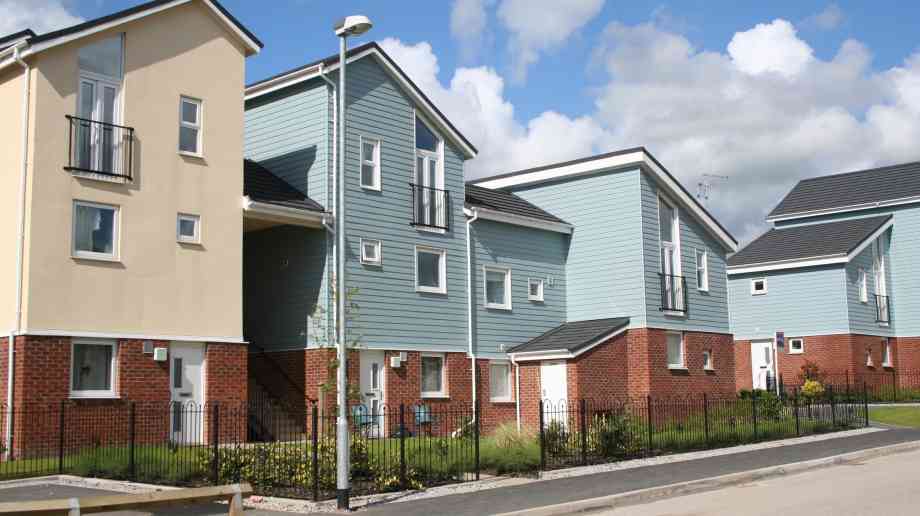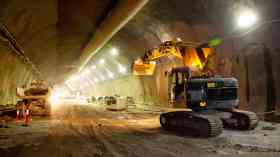Sue Robb of 4Children talks to Julie Laughton and Alison Britton from the Department for Education about the role of childminders in delivering the 30 hours free entitlement.
New housing design is overwhelmingly ‘mediocre’

A national audit has revealed that the design of new housing developments in England is overwhelmingly ‘mediocre’ or ‘poor’, with less-affluent communities the worst affected.
Conducted by University College London for CPRE, the report found that one in five of the audited 140 housing developments built across England since 2007 should have been refused planning permission outright as their poor design was contrary to advice given in the National Planning Policy Framework. A further 54 per cent should not have been granted permission without significant improvements to their design having been made first.
The audit also found that less affluent communities are ten times more likely to get worse design, even though better design is affordable, and that the worst reported aspects of design include developments dominated by access roads and the poor integration of storage, bins and car parking, leading to unattractive and unfriendly environments with likely negative health and social implications
CPRE suggests that the government should be more prescriptive in seeking less sprawling densities, as more compact developments tend to be designed more sensitively. It should require highways design that helps to create high quality, characterful places. Furthermore, local authorities need to use proactive design codes – design parameters established for each site – and design review processes for all major housing schemes. Local authorities also need to end the current disconnect between highways design and planning aspirations when it comes to new housing areas.
Matthew Carmona, chair of the Place Alliance, who led the research, said: “Research has consistently shown that high-quality design makes new residential developments more acceptable to local communities and delivers huge social, economic and environmental value to all, yet we are still failing in this regard across England.
“Planning authorities are under pressure to deliver new homes and are therefore prioritising numbers in the short-term over the long-term negative impacts of bad design. At the same time, housebuilders have little incentive to improve when their designs continue to pass through the planning system. Some highways authorities, meanwhile, do not even recognise their role in creating a sense of place for communities. Collectively, housebuilders, planning authorities and highways authorities need to significantly raise their game. This can’t come soon enough.”
David Renard, the Local Government Association’s housing spokesman, said: “Councils want to work with the government over the critical need for renewed national leadership on standards for new homes, which would give certainty to councils, developers and communities. These standards should future-proof all new homes, ensuring they are accessible for all ages and all markets, meet the housing needs of our ageing population and are environmentally sustainable.
“High-quality homes for affordable and social rent are desperately needed across the country now, and councils need to be able to resume their role as major builders of affordable homes. The last time this country built homes at the scale that we need now was in the 1970s when councils built more than 40 per cent of them. Councils were trusted to get on and build homes that their communities needed, and they delivered, and they can do so again.
“For that to happen, the government needs to use the forthcoming Budget to reform Right to Buy, by allowing councils to keep receipts of homes sold under RTB in full and to have the flexibility to set discounts locally. It should also revoke the permitted development right, which means local communities are denied the opportunity to shape the area they live in, ensure homes are built to high standards with the necessary infrastructure in place, and see affordable housing provided.”
Company Focus
Located in Bromley, Japanese Knotweed Eradication Ltd has been providing solutions in the treatment and removal of Japanese Knotweed (Fallopia Japonica) for over a decade. During this time we have mastered a repertoire of methods, from herbicidal treatments to landscaping solutions, tailored to address the unique challenges our clients face with this pervasive weed.
Event Diary
UKREiiF has quickly become a must-attend in the industry calendar for Government departments and local authorities.
The multi-award-winning UK Construction Week (UKCW), is the UK’s biggest trade event for the built environment that connects the whole supply chain to be the catalyst for growth and positive change in the industry.
Supplier Profiles
Geo Energy
At GeoEnergy Design, we're on a mission to disrupt the traditional way heating and cooling ha
Latest Features
Professor Harith Alani, director of the Knowledge Management Institute at the Open University explains how AI can be used for good and bad.
Alex Lawrence, head of health & social care, techUK sets out techUK’s Five Point Plan for CareTech.

















